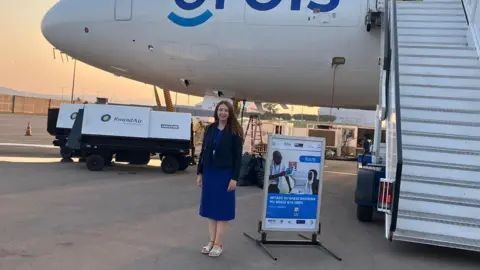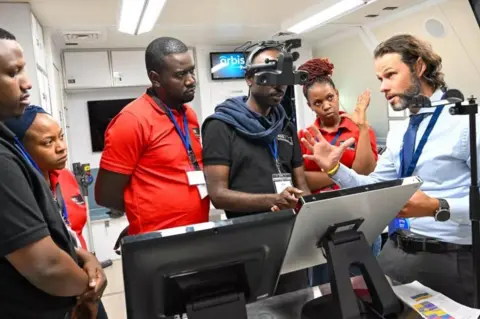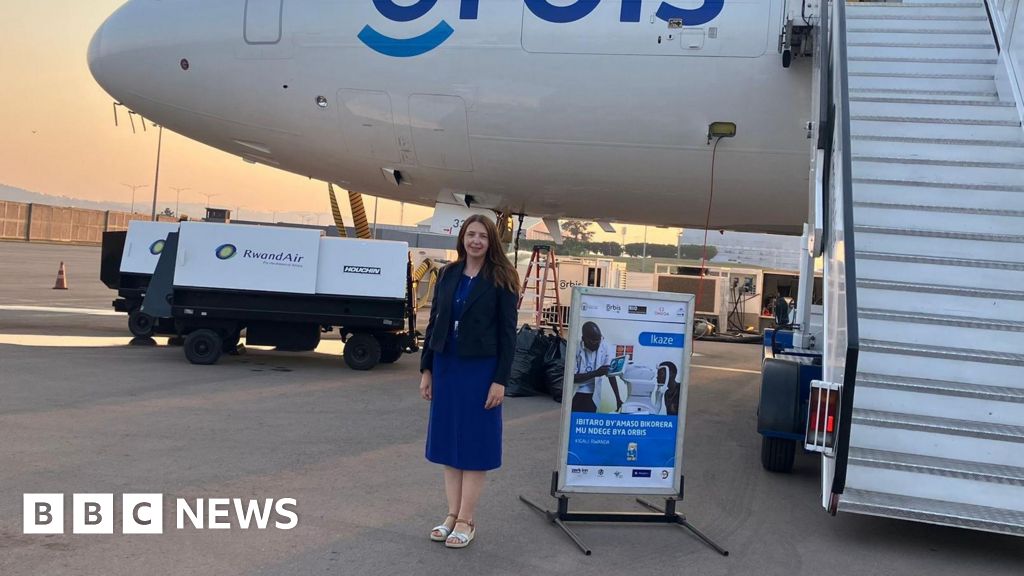Jack SilverBBC News, Guernsey
 Orbis
Orbis
Anaesthetist Dr Michelle Le Cheminant shared her skills with eye care professionals and anaesthetists from Rwanda
A doctor from Guernsey says a charity project teaching Rwandan healthcare workers is “vital for the future of safe surgery”.
Anaesthetist Dr Michelle Le Cheminant shared her skills with eye care professionals and anaesthetists in a teaching hospital based on a plane equipped with an operating theatre, recovery room and classroom space.
The Flying Eye Hospital, run by eye care charity Orbis, visited Rwanda for two weeks in late-July.
Dr Ciku Mathenge, medical advisor for Orbis in Africa, said many of the students had never been on a plane before and the training from world-class experts had been “life-changing”.
The trip marked Dr Le Cheminant’s eight time volunteering with the team.
“Rwanda has just 30 anaesthetists for a population of 13 million people, so that training of the next generation is vital for the future of safe surgery,” she said.
 Orbis
Orbis
The Flying Eye Hospital has an operating theatre, recovery room and classroom space
She added her “stand-out moments” included seeing a trainee’s sense of pride after doing her first local anaesthetic eye block.
Another was meeting a “charismatic” trilby-wearing potato farmer with an “infectious smile”, adding: “He reminded me of home!”
Dr Le Cheminant, who is deputy chair of Guernsey’s Medical Specialist Group, said the project benefited her patients in Guernsey as she learned a lot from other volunteer doctors “who come from centres of excellence all over the world”.
The director of the Flying Eye Hospital, Maurice Geary, said the students were “a wonderful group of young doctors who are committed to delivering care in the future in their communities”.


